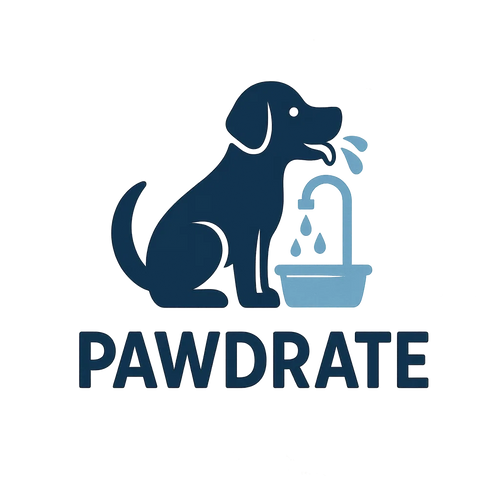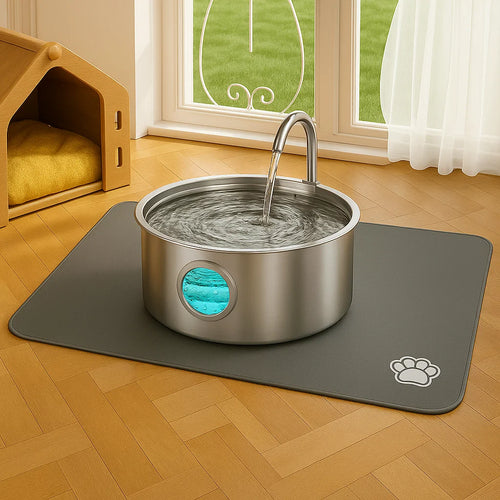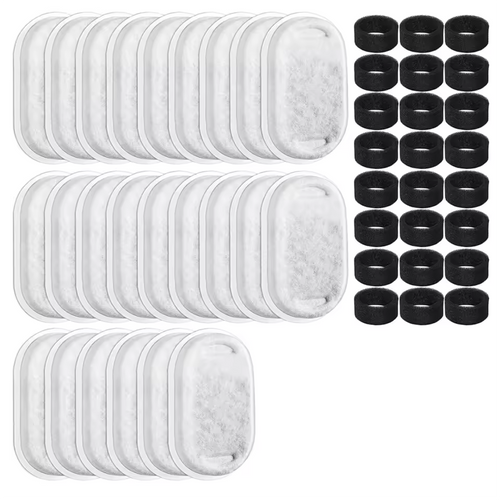Dr. Martinez had just delivered the news I'd been dreading. "Your dog has early-stage kidney disease," she said gently, watching as I processed the diagnosis. My 8-year-old Labrador, Buddy, sat beside me, tail still wagging, completely unaware that his kidneys were failing. "If only I'd known how to prevent this," I thought, remembering all the times I'd noticed him drinking more water but dismissed it as normal aging.
That moment changed everything about how I approach dog health—and it's why I'm sharing this guide with you today.
If you're reading this because you want to prevent kidney disease in your dog, you're already ahead of where I was. The truth is, kidney disease affects 1 in 10 dogs, but many cases could be prevented or delayed with the right knowledge and actions.
Understanding Kidney Disease in Dogs
Before diving into prevention, let's understand what we're protecting against. Your dog's kidneys are remarkable organs that:
- Filter waste products from the blood
- Regulate hydration and electrolyte balance
- Produce hormones that help create red blood cells
- Control blood pressure
When kidneys begin to fail, toxins build up in the bloodstream, leading to a cascade of health problems. The heartbreaking part? Symptoms often don't appear until 75% of kidney function is already lost.
Types of Kidney Disease
Acute Kidney Disease: Sudden onset, often from toxins or infections
- Can sometimes be reversed if caught quickly
- Medical emergency requiring immediate treatment
Chronic Kidney Disease (CKD): Gradual loss of function over time
- More common in older dogs
- Cannot be cured but can be managed
- Focus of most prevention efforts
What Causes Kidney Disease in Dogs?
Understanding the causes helps us prevent them. Based on veterinary research, here are the primary culprits:
1. Age-Related Degeneration
As dogs age, kidney function naturally declines. While we can't stop aging, we can slow its effects.
2. Chronic Dehydration
This is perhaps the most preventable cause. When dogs don't drink enough water consistently, their kidneys work harder to concentrate urine, leading to long-term damage.
3. Dental Disease
Surprised? Many pet parents are. Bacteria from infected teeth and gums can enter the bloodstream and damage the kidneys. Studies show dogs with severe dental disease are at significantly higher risk for kidney problems.
4. Toxin Exposure
Common household dangers include:
- Antifreeze (ethylene glycol)
- Grapes and raisins
- NSAIDs (like ibuprofen)
- Lilies (extremely toxic to cats, moderately to dogs)
- Vitamin D overdose
5. Genetic Predisposition
Certain breeds face higher risk:
- Cocker Spaniels
- Bull Terriers
- German Shepherds
- Shih Tzus
- Samoyeds
6. High Blood Pressure
Often goes undiagnosed in dogs but can silently damage kidneys over years.
7. Infections
Bacterial infections, particularly leptospirosis from contaminated water, can cause acute kidney injury.
Early Warning Signs of Kidney Disease in Dogs
Catching kidney disease early makes a massive difference. Watch for these early signs of kidney problems:
The First Signs (Often Missed):
- Increased thirst and urination (polydipsia/polyuria)
- Subtle decrease in energy
- Occasional loss of appetite
- Mild weight loss
Progressive Symptoms:
- Bad breath with ammonia smell (uremic breath)
- Pale gums
- Vomiting, especially in the morning
- Difficulty urinating or changes in urine color
- Lethargy and weakness
Late-Stage Symptoms:
- Complete loss of appetite
- Severe vomiting and diarrhea
- Seizures
- Inability to produce urine
How to Prevent Kidney Disease in Dogs: 10 Proven Strategies
1. Ensure Constant Access to Fresh, Clean Water
This is the single most important prevention step. Chronic mild dehydration is a silent killer of kidneys.
Prevention tips:
- Provide multiple water stations throughout your home
- Clean water bowls daily to prevent bacterial growth
- Consider filtered water to remove impurities
- Monitor daily water intake (1 oz per pound of body weight)
- Use flowing water sources if your dog prefers them
Many dogs instinctively prefer moving water because it signals freshness. If your dog doesn't drink enough from a bowl, this preference could be putting their kidneys at risk.
2. Maintain Excellent Dental Hygiene
The mouth-kidney connection is real and significant.
Dental care routine:
- Daily teeth brushing (yes, daily!)
- Professional cleanings annually or as recommended
- Dental chews approved by the Veterinary Oral Health Council
- Regular mouth inspections for red gums, bad breath, or loose teeth
Remember: Bacteria from dental disease doesn't stay in the mouth—it travels through the bloodstream to vital organs.
3. Feed a High-Quality, Balanced Diet
Nutrition plays a crucial role in kidney health.
Dietary guidelines:
- Choose high-quality proteins that are easily digestible
- Avoid excessive phosphorus (check pet food labels)
- Limit sodium to reduce kidney workload
- Consider wet food for additional moisture
- Avoid raw diets unless carefully balanced (risk of bacterial contamination)
For senior dogs (7+ years): Talk to your vet about senior formulas with adjusted protein and phosphorus levels.
4. Schedule Regular Veterinary Check-ups
Early detection is your best weapon against kidney disease.
Recommended screening schedule:
- Annual blood work for dogs under 7
- Twice-yearly blood work for senior dogs
- Urinalysis to check kidney concentrating ability
- Blood pressure checks for at-risk breeds
- SDMA testing (detects kidney issues earlier than traditional tests)
5. Prevent Toxin Exposure
Create a kidney-safe environment:
Indoor safety:
- Store all medications securely
- Keep antifreeze in locked cabinets
- Remove toxic plants
- Never give human pain relievers
- Secure garbage cans
Outdoor safety:
- Avoid puddles in parking lots (antifreeze)
- Prevent drinking from standing water (leptospirosis risk)
- Use pet-safe ice melts
- Supervise to prevent eating unknown substances
6. Maintain a Healthy Weight
Obesity strains all organs, including kidneys.
Weight management tips:
- Regular exercise appropriate for age
- Measure food portions precisely
- Limit treats to 10% of daily calories
- Monthly weight checks
- Adjust food as activity levels change
7. Control Blood Pressure
High blood pressure silently damages kidneys over time.
Prevention strategies:
- Regular blood pressure screening
- Maintain healthy weight
- Moderate sodium intake
- Regular exercise
- Stress reduction
8. Protect Against Infections
Bacterial infections can trigger acute kidney injury.
Protective measures:
- Vaccinate against leptospirosis if in endemic areas
- Prevent access to contaminated water sources
- Maintain good hygiene
- Treat UTIs promptly
- Keep immune system strong
9. Manage Chronic Conditions
Certain conditions increase kidney disease risk:
Conditions requiring extra vigilance:
- Diabetes
- Heart disease
- Cushing's disease
- Chronic UTIs
- Inflammatory bowel disease
Work closely with your vet to manage these conditions and monitor kidney function.
10. Consider Preventive Supplements
Some supplements may support kidney health:
Vet-approved options:
- Omega-3 fatty acids (anti-inflammatory)
- Antioxidants (vitamin E, vitamin C)
- B vitamins (support kidney function)
- Probiotics (gut-kidney axis)
Always consult your vet before starting supplements.
Special Considerations for Senior Dogs
Dogs over 7 years need extra kidney protection:
Enhanced Monitoring
- Blood work every 6 months
- Track water intake more closely
- Note any behavior changes
- Regular weight checks
Dietary Adjustments
- Consider senior formulas
- Add moisture to meals
- Monitor protein intake
- Reduce phosphorus if advised
Lifestyle Modifications
- More frequent, shorter walks
- Easy access to water bowls
- Raised feeding stations
- Non-slip surfaces near water
Creating a Kidney Disease Prevention Plan
Here's your actionable prevention checklist:
Daily Tasks:
- ✓ Ensure fresh water is always available
- ✓ Monitor water intake
- ✓ Brush teeth or provide dental chews
- ✓ Observe for any unusual symptoms
Weekly Tasks:
- ✓ Clean all water bowls thoroughly
- ✓ Check weight and body condition
- ✓ Inspect mouth for dental issues
Monthly Tasks:
- ✓ Review diet and adjust as needed
- ✓ Check household for new toxin risks
- ✓ Note any behavior changes
Annual Tasks:
- ✓ Complete veterinary wellness exam
- ✓ Blood work and urinalysis
- ✓ Professional dental cleaning
- ✓ Update prevention strategies
The Role of Hydration in Kidney Disease Prevention
Let's circle back to the most critical factor: hydration.
Proper hydration:
- Helps flush toxins from the kidneys
- Reduces concentration of minerals that could form stones
- Maintains healthy blood pressure
- Supports overall kidney function
Yet studies show many dogs are chronically mildly dehydrated, especially:
- Senior dogs with reduced thirst drive
- Dogs who dislike their water bowl
- Busy dogs who "forget" to drink
- Dogs fed only dry food
This chronic dehydration slowly damages kidneys over years, often without obvious symptoms until it's too late.
When to See Your Vet Immediately
Don't wait for annual check-ups if you notice:
- Sudden increase in thirst or urination
- Vomiting more than once
- Loss of appetite lasting over 24 hours
- Lethargy or weakness
- Bad breath with chemical smell
- Bloody or dark urine
- Straining to urinate
The Bottom Line: Prevention Is Possible
My experience with Buddy taught me that kidney disease doesn't have to be inevitable. While we can't prevent every case, we can significantly reduce risk through vigilant care and smart prevention strategies.
The most important takeaway? Start prevention early. Don't wait for symptoms or senior years. The habits you build today—ensuring proper hydration, maintaining dental health, and scheduling regular vet visits—create a foundation for lifelong kidney health.
Remember, your dog depends on you to make health decisions they can't make for themselves. By taking proactive steps now, you're giving your dog the best chance at a long, healthy life with strong, functioning kidneys.
To help your dog stay hydrated and healthy, check out the Pawdrate™ Filtered Water Fountain—designed to encourage natural drinking behavior with fresh, flowing water that dogs instinctively prefer.





